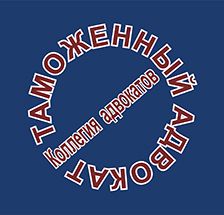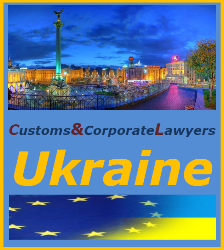The concept of transfer of customs authorities in places close to the state border. Current issues and the current status of implementation of the сoncept.
Author: Konstantin L. Kurochkin,
The head of the Customs & Corporate Lawyers, barrister
In 2008 the FCS of Russia issued an order from 1 October 2008 № 1221 «On the decision of the Collegium of the FCS of Russia on August 29, 2008 «On draft concept for customs clearance and customs control of goods in places close to the state border of the Russian Federation» (hereinafter - the Concept).
The concept implied that by 2014 at the border will be all goods imported by road. Only exceptions were a number of items, and accordingly specialized customs bodies, which, however, reorganization also touched upon.
The purpose of such a global reorganization was to import cargo after crossing the border, did not go under customs transit in the Central regions of the country and large metropolises to complete the procedures, and immediately after the «customs clearance» could move in any direction, cutting down on time delivery to the end consumer.
Given the close link between the development of customs infrastructure and development of transport-logistic infrastructure in the region, today the question of the implementation of the Concept is topical both for the government regulatory bodies, and for participants of foreign economic activity.
Solution to the problems it was supposed to create outside the cities major of customs and logistics terminals (hereinafter - CLT), the most important objective is to optimization of customs clearance.
However, at the stage of discussion of the Concept of market participants «near customs» services, expressed the opinion that the planned changes not only does not resolve the problem, but also lead to a worsening of the situation.
In spite of the numerous and often legitimate criticism implementation of the main project in the framework of the implementation of the Concept of transfer of customs clearance to the border areas is ongoing.
Today we have the opportunity to assess the progress already done changes and the prospect of planned activities for implementation of the Concept.
Initially the urgency of realization of the Concept was stipulated by the necessity of transfer of customs clearance to the border subjects of the Russian Federation in connection with the growth of foreign trade turnover of the Russian Federation, the problem of excessive traffic load on large Russian cities.
However, negative effects could not be avoided. And perhaps the most urgent for traders issue continues to be the situation with the places of design that actively reformed customs in the framework of the Concept.
In practice, the transition to the design of the most part of cargoes in the border areas is happening in terms of what items themselves are not prepared to accept more traffic. Naturally, such a situation leads to queues at the border, the increase of time of customs control, which inevitably entails additional costs for importers.
In order to assess possible consequences of the next wave of reorganization of customs bodies is enough to recall the results of reorganization (liquidation) of the Moscow customs (North, South, East, West), with whom practically simultaneously stopped their activity, about a third of temporary storage warehouses serving the significant part of freight flow.
Similar problems have arisen in the result of the elimination of two customs posts on the largest terminals in St. Petersburg. That led, as in the case of the Moscow region, considerable problems for participants of foreign economic activity, because the existing posts and warehouses of temporary storage were not physically ready to serve the whole stream of trucks.
However, the process of transfer of customs structures in the border continues.
So, this year, has stopped the existence of a number of units in the Moscow region, which are now combined in Moscow regional customs. When it was liquidated on 19 posts, i.e. more than a half.
Today, planned earlier conclusion of the customs Declaration of goods from the Moscow region in the border areas of the country is suspended.
As explained in the Central customs administration, in the near future it is planned transfer of customs control of goods, imported by road.
These are the actual control of imported goods, which includes inspection and examination of goods, verification of the accompanying documents etc. In this mode, the control should not affect the procedure of 40% now arriving in Moscow region of goods - perishable food, medicines, diplomatic letters and mail etc.
At the same time for the unloading of traffic in the capital it is planned relocation of customs clearance parts of railway cargo and freight yards in Moscow and the neighboring regions.
Implementation of the project could begin in August. It is planned that the changes will affect only those goods that arrive in the capital of railway transport under customs control.
Among the measures to optimize transport infrastructure of the metropolis also identified measures for the management of cargo flows. Including withdrawal of customs objects outside the city. Today already agreed on the priority place outside for customs operations connected with the actual control, unloading or transhipment of the goods delivered by railroad. This is Mixnevskii customs post of the Moscow customs (Moscow region, Podolsk district), customs and warehouse complex "Taskom" (Obninsk, Kaluga region), transportation and logistics facility "ROSVA" (st. Vorotynsk, Kaluga region).
As for the formation of other regional customs agencies operating on the territory of the Central district, the regional customs, where there are no checkpoints and where small amounts of customs declaration, most likely, will be converted in the customs posts with joining to the bigger customs.
Today we can already talk about the fact that the most «painful» changes in the structure of the customs authorities of the affected importers of food products and perishable products, which increase the time of customs clearance turned out to incur significant losses.
Today repetition of such situation importers fear of pharmaceutical products - the number of customs posts in the Moscow region, intended for the clearance of drugs can be reduced from 20 to 4.
All in all, as reported by the FCS of Russia, by the end of 2010 carried out measures on the elimination of 56 and creating 26 customs posts.
The Federal customs service acknowledges that technology that could reduce the load on the crossing points will be soon exhausted. Therefore, the key problem and the cause queues remains undeveloped infrastructure of customs posts.
In our opinion the way to solve problems is to coordinate actions of the FCS of Russia on the reorganization of the participants of foreign economic activity. Such measures in our opinion, will allow minimizing the risks, to avoid that at the first stage of reorganization failed.
The positive result of the implementation of the Concept was the introduction of the compulsory preliminary informing, improvement of the Institute of prior Declaration, primarily in terms of the possibility of the completion of the main amount of customs formalities necessary for the release of the goods before their import on customs territory of the Russian Federation, improvement of the procedure for the establishment of the special simplified procedures of customs clearance and a number of other provisions.
Creation of the Customs Union and gave an additional impetus to implementation of measures on realization of the Concept.
Change of the legislation in connection with the start of functioning of the Customs Union has affected virtually all the companies involved in foreign trade, regardless of whether they carry trade operations with residents of States or the exercise of their commercial partners from third countries. Of course, in business structures, working with partners from the countries of the Customs Union, the greatest change.
The formation of the Customs Union led to significant changes in the customs legislation. Were adopted and entered into force the core treaties governing the customs regulation in the Customs Union and the Russian Federation. These include:
- The common customs tariff is summary of rates of customs duties applied on the territory of the Customs Union from January 1, 2010.
- From, July 2010 year of the new Customs code has been applied in relations between Russia and Kazakhstan, and from July 6, 2010 - in the relations between Russia, Belarus and Kazakhstan. The customs code is a key instrument in the sphere of regulation of customs legal relations in the territory of the countries-members of the Customs Union.
- December 29, 2010, the Federal law came into force «On customs regulation in the Russian Federation», which essentially replaced the Customs Code of the Russian Federation.
- From January 1, 2010 came into force the basic agreement in the sphere of security on the territory of the Customs Union of application of unified non-tariff regulation measures.
Certainly, the development of the legislative framework creates a lot of new opportunities for the market participants, since the creation of the Customs Union means the expansion of the scale of production and increase the competitiveness of the integrating national economies, a significant reduction in costs.
The practice was started enormous amount of documents, the changes affected virtually all spheres of customs regulation.
So, created a legal base for introducing the technology of remote release of goods, which, along with the preliminary informing and electronic Declaration displays the customs administration to a qualitatively new level. The basis of the technology of remote issue is the separation of the process of customs control on the documentary and factual control, which carry out various customs authorities. This allows a reduction in the flow of heavy haulers, next to a big city, streamlines document circulation, reduces the costs for the participants of foreign economic activity, and reduces the time of customs operations in respect of the goods.
The introduction of Internet-technologies in electronic submission of information is one of the priority tasks of customs bodies. With the 2014 it is planned to complete the transition to electronic document circulation and presentation technology in the electronic form of the customs Declaration and documents on which it is filled.
However, at the moment the technology of electronic declaration not working flawlessly, participants of foreign economic activity have already faced a problem of application of electronic digital signature and, paradoxically, the need to duplicate e-CD set of documents on paper.
Positively evaluated by the introduction of the institution of authorized economic operator. Authorized economic operator included in the register, can use special simplified, providing for temporary storage of goods in their warehouses (open areas, other areas), the release of goods to the customs declaration, the performance of certain customs operations related to the production of goods directly in warehouses (open areas, other areas of the authorized economic operator.
This Institute provides real possibilities for simplification of customs procedures. The hopes of many foreign trade companies, connected with the fact that realization of the technology of the authorized economic operator will allow them not only to considerably reduce the time of customs clearance of import, but to reduce the cost of customs clearance. It is important that one of the characteristics of the authorized economic operator, engaged in the production activity is the emergence of the possibility to abstain from using the services of temporary storage warehouses.
However, the question of time, when the Institute of the authorized economic operator actually starts to work, remains open.
Customs legislation is in constant development, which certainly complicates the decision facing participants of foreign economic activity tasks, as leads to changes in market conditions. In such conditions, in our view, a comprehensive approach to solving problems, because the only way to achieve results that allow to conduct successful business.

